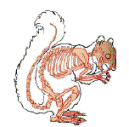
Julie London and Gary Cooper in Man of the West (dir. Anthony Mann, 1958).
This film--its story, presentation of character, plot movement, implied heroic code--is best watched as one would attend to the speech of one's patient (assuming one is a therapist) on the psychiatric couch. The same could be said for the bulk of classic Hollywood narrative cinema, especially in genres like the Western: genres, that is, that require investment in a mythos of lonely dignity and the quiet transcendence of principled individualism over the barbarisms that attend social alliances on the frontier.
In the case of Gary Cooper's Link Jones, this is a transcendence of both the outlaw gang, led by Lee J. Cobb, in which he was conditioned for a life of crime, and the emerging America of technological progress and civilized conformity. A train pulling into the station envelops him in steam, and he cringes in horror: the future has arrived, and it is bigger and rougher than he is. A chatty fellow passenger, played by Arthur O'Connell, nearly suffocates him with his familiarity and urban banality. Only once the train is waylaid by bandits, and he must escort O'Connell and schoolteacher Julie London through the countryside, is he at ease. In the wild, he can be self-possessed. Nevertheless, this trek leads him smack-dab onto the porch of his old hideout from his early days as a badman. His mentor Cobb has become a half-senile monster, an aging king who exerts a fragile control over his followers. For the rest of the film, Cooper has to exploit whatever cred he still has with Cobb to keep him and his charges from being killed. He must re-enter his old life in order to burn it out from within and effect a virtuous rebirth.
It's all much messier than that. It's a messy movie (though not at the level of visual composition). Tangents like Julie London's enforced striptease and Cooper's outrageous fight scene with Jack Lord take center stage. Mann was always a skilled orchestrator of symptoms rather than a director with a consciously critical vision. Man of the West was problematic for its original audience, perhaps because the symptoms in question really do look like symptoms. Cooper's anxiety is the dominant note of the film, and it never dissipates, even after the main plot points are resolved. This is most evident in the erotic tension that permeates his scenes with London. She accentuates by reverse example the safeness and dullness of his reformed life with a wife and family we never see. Just as Cobb and his outlaws represent the past he has tried to leave behind, she represents the sacrifices he must make to preserve his present and future. There's never a moment of climactic acceptance or dramatic breach; everything just simmers continually.
A fascinating, semi-dark movie that coasts along on the most tenuous logic and finally just drifts to a standstill. As in so many other great Westerns, the action scenes, however entertaining, feel like incidental interruptions of a muffled core psychodrama that never quite announces itself as central, but trembles beneath the surface like a rattlesnake in a burlap bag.



No comments:
Post a Comment